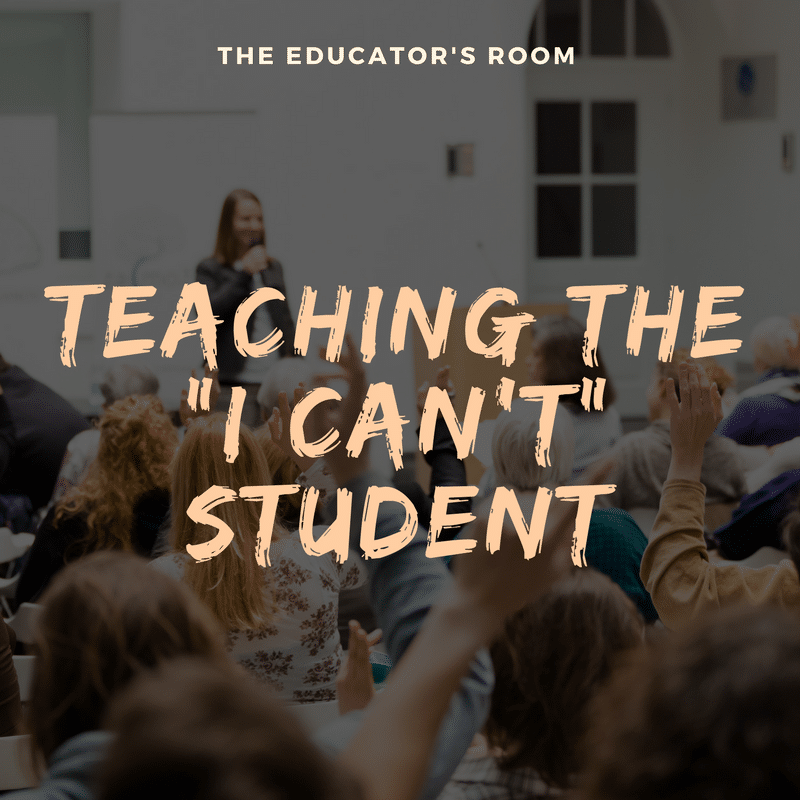People are raised hearing all kinds of information about themselves from those around them. From a young age, we overhear the conversations our parents have about how great we are at sports, how academically gifted we are, or the kinds of things we struggle with. This constant narration of our strengths and downfalls begins to play a role in how we view ourselves. Fortunately, this can often be a wonderful, life-affirming gift given to us by the people who care most. Unfortunately, it seems that most people pay much closer attention to the “needs improvement” section of the dialogue than what the section about what we do well.
I was never really aware of this phenomenon until I started teaching, but now I see it all the time. One of my students this year was late to start speaking. He did not say his first words until he was about four years old. Now a sixth grader, his mother still brings this up to his teachers as an explanation for some of the struggles he has in class. While I am sure there is some validity in this, I cannot help but wonder what strides this child could make if he did not know this information about himself.
Parents, of course, want the best for their children, and they want teachers to be aware of any possible educational hindrance their child has. Still, if you tell a teacher that your child is “really more into sports” is that setting the precedent that academics will never be their strong suit? Similarly, if children are told early on that they have a brilliant mind but aren’t very coordinated, will those children shy away from physical challenges?
[bctt tweet=”My fear is this constant premature discussion of students’ niche is creating the “I can’t” student. ” username=””]
My fear is this constant premature discussion of students’ niche is creating the “I can’t” student. Whether the conversation is initiated by a parent, friend, or the children themselves, the dialogue discourages our students from branching out and trying something new. Unfortunately, by middle and high school, these ideas are fairly deeply ingrained.
So how do we teach the “I can’t” student?
In the case of my late bloomer, a fellow teacher did what I was not brave enough to do. She spoke directly to the mother about how her constantly bringing up the topic was not benefitting the education of her son. The son was present for this conversation, and for the first time seemed aware of the fact that his early childhood did not have to dictate the rest of his academic career. Talking to the parents and helping them realize that a word said in passing can leave such a lasting impression is the first way to squash the “I can’t” attitude.
[bctt tweet=”Talking to the parents and helping them realize that a word said in passing can leave such a lasting impression is the first way to squash the “I can’t” attitude.” username=””]
I’m not the teacher who tells students they can be anything in the world, mostly because I think it is cliche. What I do teach them, however, is how to create a growth mindset. Small word changes can make a huge impact on your outlook on a problem in front of you. Trading out “I’m terrible at this” for “I haven’t learned the method that works for me yet” teaches students their struggles do not necessarily mean failure.
For some reason, art class seems to attract the most “I can’t” students. After a while, I felt like I should get “You aren’t bad at art, you just haven’t learned yet” tattooed on my forehead to save myself the breath. Instead, I started approaching it differently. When students get frustrated because their painting isn’t turning out the way they expected, I explain that it’s not a failure, it’s an opportunity to embrace a unique style. I show them a picture of a Rothko painting–which is just two solid colors painted horizontally on a canvas–and tell them this sold for $45 million. It doesn’t look realistic or even like anything; however, he found his style, and everyone has one.
We need to teach our students to overcome the fear of that terrible, four-letter F word…fail. Ideas were placed in their heads early on that they are bad at something, so they shy from trying for fear of embarrassment or failure. Students must know they are not the product of the limitations they have been told they have.







